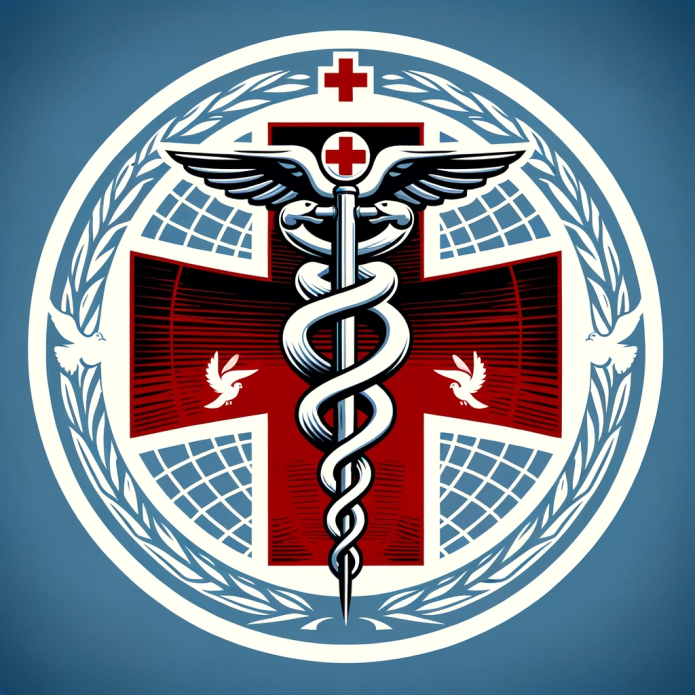As an epidemiologist who has journeyed across continents, I’ve witnessed first-hand the escalating challenges faced by healthcare workers. In regions ravaged by epidemics, the disparity in healthcare access is stark, and the perilous conditions under which we operate often go unrecognized. This blog post is a plea for a global shift in attitude towards healthcare professionals, a call for the de-politicization of healthcare, and an urgent reminder to rebuild public trust in science.
Historically, healthcare workers were seen as neutral, respected figures, especially in conflict zones and epidemic areas. However, this sanctity has eroded. Increasingly, medical professionals find themselves targeted, both physically and politically. This violence isn’t just physical; it’s also the violence of neglect, ignorance, and misinformation.
One of the most insidious threats to public health is the politicization of healthcare and science. Decisions that should be guided by scientific evidence and humanitarian principles are often swayed by political agendas. This shift not only undermines the efforts of healthcare workers but also jeopardizes public safety.
The consequence of this politicization is a profound erosion of trust in healthcare systems. Rumors and misinformation spread faster than viruses, turning communities against those trying to help them. This mistrust is not just a barrier to epidemic control but also a catalyst for violence against healthcare workers.
We must advocate for the safety and respect of healthcare workers worldwide. This means not only physical protection but also professional respect. Governments, non-governmental organizations, and international bodies must work together to ensure that healthcare workers can do their jobs without fear of violence or political retribution.
Healthcare decisions must be driven by science, not political agendas. It’s imperative that we work towards a global understanding that health issues are human issues, above partisan politics. This shift requires strong leadership and a commitment to transparency and accountability in healthcare policy and practice.
Restoring public trust is perhaps our most daunting challenge. We must engage with communities, listen to their concerns, and respond with empathy and honesty. Building trust takes time and requires a consistent, truthful, and community-centric approach to healthcare communication and policy-making.
The road ahead is fraught with challenges, but it’s a path we must tread. As healthcare professionals, our commitment is to the health and wellbeing of all. To fulfill this commitment, we need a world that respects, protects, and trusts its healthcare workers. Let’s work together to make healthcare a safe haven once more, free from the shackles of politics and conflict. This is not just a plea for the safety of healthcare workers—it’s a call for the health and safety of humanity itself.

Wait, I’m going to have to call foul here. I see none of the usual indicators of AI (Artificial Idiocy) present in the article. Usually, one finds either some logical fallacies chained together or even word salad to go with the light meal of the article itself.
Instead, we see a cogent piece, displaying logical arguments, combined with accurate observations of recent trends.
In a slightly related news tidbit, the UN has reported over 100 health care workers and responders now have been killed in the mess in Gaza.
But, one entire wing of extremists in one party continue to refuse to address weighty issues facing our society and nation, choosing instead to literally try to pick a fight with a witness under questioning in a Senate committee, a member of the House addressing a peer with “You look like a smurf” and another member of the house alleging being kidney punched by a peer in the hallway.
Illustrating yet again, there is one big difference between the Boy Scouts and Congress. The Boy Scouts have adult leadership. But then, Congress has long been well documented to being lower in efficacy to placebo in addressing any real problems befalling our nation.
Congress is definitely not sending us their best and brightest. As for the post, the AI is getting better at following prompts, and we’re playing around with training it with all the blog posts on this blog.
One of the first failures I’d observed with the AI’s output was called “hallucinations”, but held all of the hallmarks of confabulation that’s observed in humans with brain damage or dementia. To guess, I’d suspect in the human case, a memory is located, but not accessible, so the brain basically fills in the blanks. Which the AI’s were doing if data was too long in being retrieved or not accessible for other reasons, causing entirely fabricated information to be included in a response.
In one case I’m aware of, an attorney used ChatGPT to prepare a case, didn’t closely review what was output and presented it to the court. A clerk observed that the cited case law was nonexistent, which the judge noticed as well and that attorney ended up losing his license to practice law.
I’m the farthest thing in the world from being a technophobe, but with anything critical, one tests, tests, tests a lot more, then increases complexities and confounders introduced in later testing until one is certain that the technology is reliable and predictable and one has a good feel for what can go wrong if there is a failure.
It’s not as if any technology will get bored or tired of being tested.